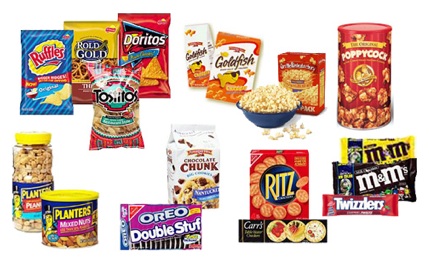Early last week I sat down with two college players to have a talk about their in-season eating habits. Based on the responses to the “Please describe your dietary habits, providing a representative example of what you would eat on any given weekday and weekend day (please include snacks, toppings, supplements, etc.)” question in the packet we make all our new athletes fill out, the daily nutrition habits of highly motivated, aspiring athletes can be described as abysmal, at best. When you consider the incredible impact nutrition has on performance, recovery, body composition, and overall health and well-being, this is a scary realization.
Although these players have opposing body composition needs, the recommendations on when and how they should eat don’t differ that much. In today’s post, I just want to walk through how I laid out their eating schedule. In a couple days I’ll get more into what each meal should be comprised of, and follow that up with a post on supplement recommendations.
Nutrition Basics
Highly specified eating for hockey isn’t drastically different from what the general population should be eating anyway. I’ll get more into this in the next post, but basically it boils down to understanding nutrient timing and following the “Don’t Eat Like an Asshole Diet”. The DELAA Diet was something I coined about 6 years ago in talking to Jeff Cousin, who at the time was the Hockey Director at the University of Delaware rink, where I played and helped run clinics. Jeff asked about my nutrition recommendations for him, so we started with the basics (the DELAA Diet). The common ground in just about every reasonable diet is that they all move people toward eating ACTUAL food, not candy, snacks, and other processed garbage. Mike Roussell’s “baggies instead of barcodes” idea fits here. While I think there are some pretty basic nutrition concepts that still haven’t been internalized by the general population (e.g. understanding that having fat in your diet won’t make you fat, fruit and fruit juice are not the same thing, and that 70% of your diet should NOT come from carbohydrates), I think there ARE some universally understood ideas that still aren’t practiced. If I asked 10,000 random people the following questions, what do you think the responses would be?
My bet is that over 90% would answer more, water, grilled. I’d follow that bet up with the realization that the majority of them don’t follow what they know. The DELAA Diet is simply eating what we all know we should be. The first step in any purposeful nutrition plan is start making better choices, in terms of both food quality and timing.

Good.

Bad.
Planning Ahead
Many people fail to eat well consistently because they don’t make healthy eating a LIFESTYLE. They view it as a short-term change, and it usually ends up being just that. The hockey season is long and arduous. A failure to consistently incorporate positive eating HABITS can have a profound impact on a player’s performance throughout the season. A great place to start is in laying out your schedule and understanding when you can/should eat. In the case of our college players, their schedule basically looks like:
Monday-Thursday
Class: 8am-12pm
Training/Practice: 3-6pm
Friday
Study Hall: 9-10am
Game: 7-10pm
Saturday
Game: 7-10pm
Designing an eating schedule around this is pretty straight forward, but laying it out helps ensure that the player will stick to it, and make eating at structured times part of their daily routine.
Monday-Thursday
Breakfast: 7:30am
Class: 8am-12pm
Lunch: 12:15pm
Pre-Practice/Training Meal: 2:15pm
Training/Practice: 3-6pm
Post-Practice/Training Meal: 6:15pm
Dinner: 7pm
Snack: 9pm
Friday
Breakfast: 8am
Study Hall: 9-10am
Lunch: 11am
Pre-Game Meal: 3pm
Pre-Game Snack: 4:45pm
Game: 7-9:30pm
Post-Game Snack/Meal: 9:30pm
Post-Game Meal: 10pm (If only a snack above)
Saturday
Breakfast: 9am
Lunch: 12pm
Pre-Game Meal: 3pm
Pre-Game Snack: 4:45pm
Game: 7-9:30pm
Post-Game Snack/Meal: 9:30pm
Post-Game Meal: 10pm (If only a snack above)
Sunday
Breakfast: 9-10am
Lunch: 12:30pm
Snack: 3pm
Dinner: 6pm
Snack: 9pm
The strengths in this structure are that it provides the players quality nutrients every few hours throughout the day AND that they’re eating around the same times everyday. Obviously the players are going to wake up a little later on the weekends. They need the extra rest. That said, a lot of players err in sleeping until 1pm, doing nothing for a couple hours, then grabbing a pre-game meal around 2 (Saturday) or some pizza for the 4pm football games (Sunday). These are usually the same players that lose a lot of weight throughout the season, get fatter, and feel run down. If you look at the schedule above, this means that they’d skip about 4-5 eating opportunities EVERY weekend. Waking up, grabbing a quick omelette, hanging out for an hour, then taking an hour nap is a much better option.
Take Home
Laying out a schedule will help players incorporate structured eating into their daily routine. Nutrition choices are habitual, for better or worse. Eating at appropriate intervals and during key times throughout the day (e.g. pre- and post-practice/training) will help players perform and feel better throughout the season.
Check back in a couple days for examples of quality food choices and pre- and post-practice/training recommendations.
To your success,
Kevin Neeld